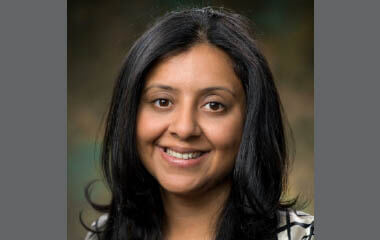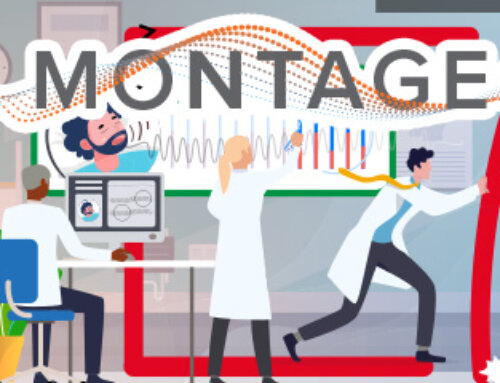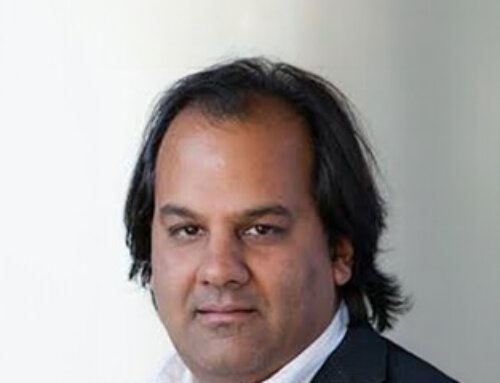
Binal S. Kancherla, MD
Pediatric Pulmonology at Texas Children’s Hospital
Sleep Medicine Program Assistant Medical Director
Dr. Binal Kancherla is a clinic physician at Texas Children’s Sleep Center, one of the few accredited sleep centers in the country specializing in children’s sleep disorders. Over the next 5 years, the center is undergoing an expansion that will include the addition of beds, providers, nurse practitioners, and sleep technologists. Dr. Kancherla is also a member of the AASM Public Safety Committee.
Texas Children’s Hospital is undergoing a 22-bed, pediatric sleep services expansion. What prompted such a large expansion?
We receive about 50 referrals a day for sleep studies and sleep clinics. I have seen our business triple in the last 10 years. The need to identify and treat childhood sleep disorders has grown so much in the last decade. We want to continue to provide exceptional care in Houston and the surrounding communities, and Texas Children’s Hospital realizes the need for this expansion in order to reach as many children as we can that need a pediatric sleep specialist.
In addition to sleep-disordered breathing, what sleep problems are common in your patients?
We see a variety of disorders including narcolepsy, pediatric insomnia, parasomnias, and hypersomnias. In addition, as a tertiary referral center, we often see complex medical conditions including children with sleep apnea who also have significant developmental delay, genetic disorders, complex congenital heart disease, solid organ transplants, and complex airway issues.
In your work do you frequently collaborate with other departments to provide coordinated care?
We pride ourselves in a multidisciplinary approach. Our current sleep program consists of pediatric neurologists and pediatric pulmonologists, all who also hold sleep medicine board certification/eligibility. In addition, we work closely with those who specialize in otolaryngology, psychology, and psychiatry. Our relationship with the adult sleep medicine program includes extensive involvement with the training of sleep medicine fellows as well.
What is most challenging about providing pediatric sleep services? Most rewarding?
The biggest challenge I face as a pediatric sleep provider is bringing to light the prevalence of sleep disorders in children. I often see that primary care doctors screen well for sleep-disordered breathing, but many times children experience a variety of other sleep problems that require treatment, and parents are not even aware there is a field dedicated to helping them. I find working with the families most rewarding because when their child is sleeping well, the entire family is sleeping well, and this can change a household dynamic. When parents come to me in tears because their child cannot sleep, it breaks my heart. To see the evolution of their behavior and well-being after they are able to receive proper care is amazing.
In recent years, has your sleep center seen an increase in adolescent patients with sleep problems?
Absolutely! Adolescents are an interesting population, not quite children and not yet adults. It would be unfair to expect them to have the same sleep issues as adults. I feel that sleep problems in adolescents are usually underdiagnosed, and parents just chalk it up to them “being teens.” Adolescents are a population that is vulnerable to chronic sleep deprivation, sleep-disordered breathing, and other circadian rhythm sleep-wake disorders. Clinicians need to be aware of the lasting and detrimental effects of poor sleep on their health.
Have you found that treating sleep problems in adolescents improves mood problems such as anxiety and depression?
Yes, I see many adolescents who have multiple psychiatric diagnoses with comorbid sleep diagnoses such as chronic insomnia. I also see that treating their sleep problems benefits their long-term psychiatric health.
Has caring for pediatric patients made you more aware of societal issues related to teen sleep – such as drowsy driving and school start times?
I have been involved in the start school later initiative, and having children myself, I feel it’s important for adults to realize that children need more sleep. Children, and even teens at age 16-18, have different sleep needs than adults. Younger children often require 10-12 hours of sleep, and teenagers require about 9 hours a night. The current school start times and slew of after-school activities and commitments do not make this feasible. In addition, crash risk increases significantly when driving drowsy – this is a proven fact. Drowsy driving is equivalent to drunk driving, and if we have strict regulations for drunk drivers, I believe the same should be in place for drowsy driving. Unfortunately, teens are restricted to the rules that school districts and adults make. It is our job as sleep clinicians and parents to bring this problem to light.
Do you have any advice for sleep physicians who didn’t receive pediatric training but still see children and teens in their practice?
Always listen to the patients. I feel that if you take the time to listen to children, families, and teens, while emphasizing that their sleep can improve, you can come up with a treatment plan that works and will help them maintain healthy sleep habits. Many teens do not even realize they are sleep deprived, and even a little extra sleep every night will make a difference. Take the time to take a detailed sleep history and don’t just focus on what’s obvious or common.
This content was published in the Winter 2018 issue of Montage, the official membership publication of the American Academy of Sleep Medicine (AASM). To read more content from this issue, click the button below!








